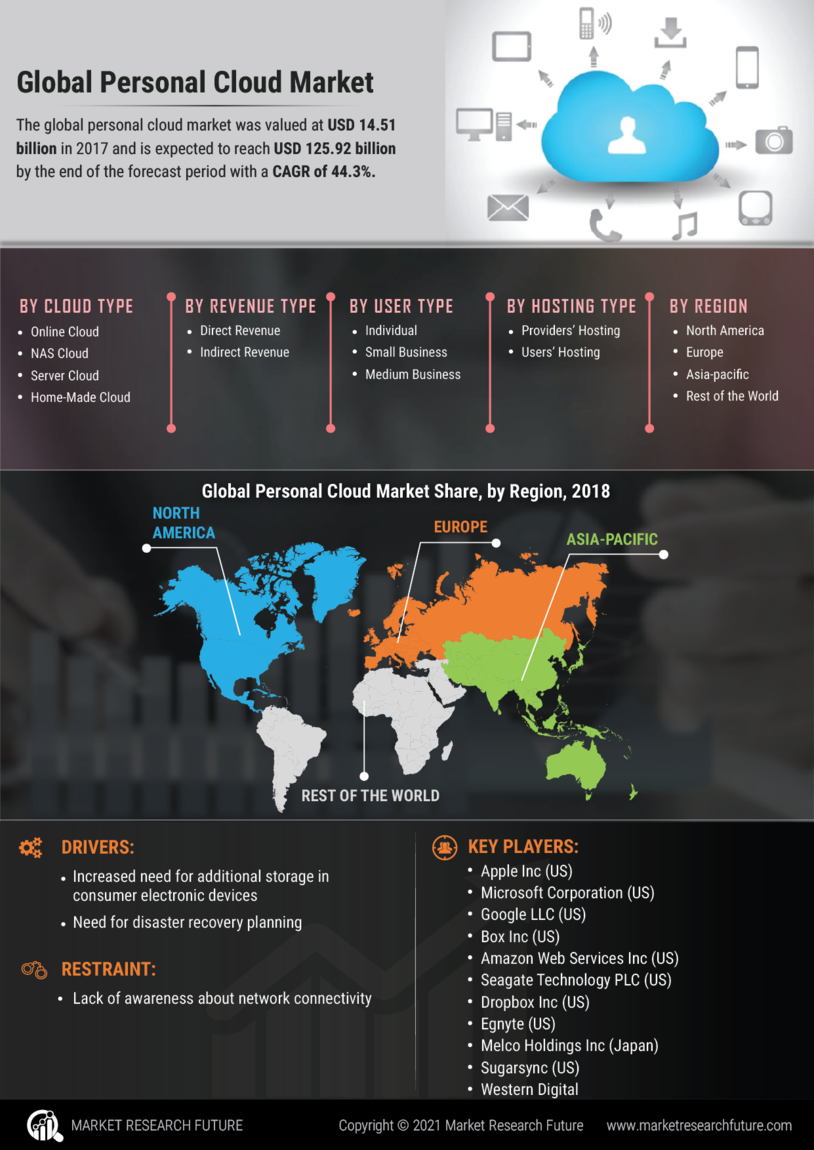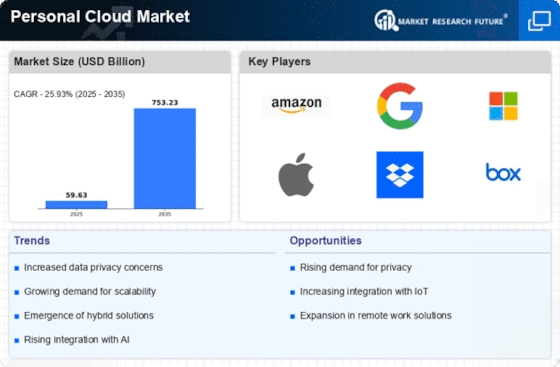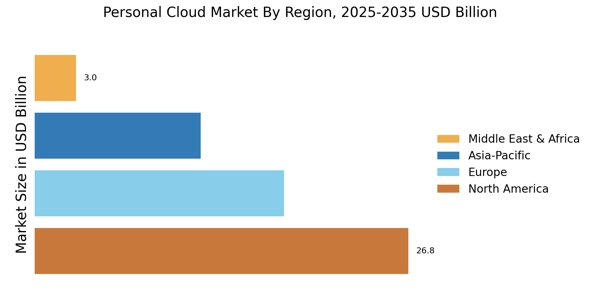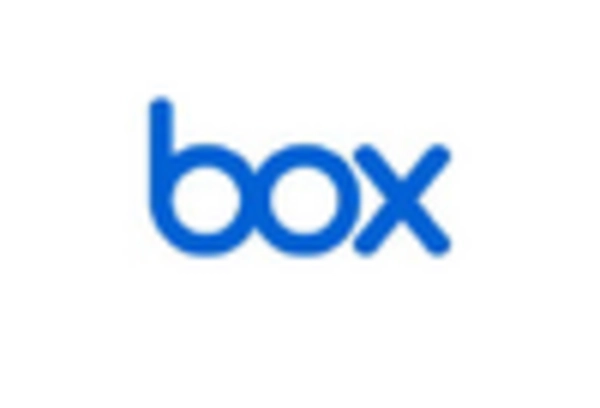Advancements in Cloud Technology
The Personal Cloud Market benefits from continuous advancements in cloud technology. Innovations such as artificial intelligence and machine learning are enhancing the functionality and efficiency of personal cloud solutions. These technologies enable better data management, predictive analytics, and improved user experiences. For instance, AI-driven features can automate file organization and optimize storage usage, making personal cloud services more appealing to users. As these technological advancements unfold, the Personal Cloud Market is likely to expand, attracting tech-savvy consumers who seek cutting-edge solutions for their data storage needs.
Growing Adoption of Mobile Devices
The Personal Cloud Market is significantly impacted by the growing adoption of mobile devices. As smartphones and tablets become ubiquitous, users increasingly rely on personal cloud solutions to access their data on the go. Recent statistics reveal that mobile device usage has surpassed desktop usage, indicating a shift in how individuals interact with their data. This trend suggests that personal cloud services must cater to mobile users by providing intuitive interfaces and seamless synchronization across devices. Consequently, the Personal Cloud Market is poised for growth as it adapts to the evolving preferences of a mobile-centric consumer base.
Increased Awareness of Data Security
The Personal Cloud Market is witnessing a heightened awareness of data security among consumers. With the rise in cyber threats and data breaches, individuals are becoming more cautious about where and how their data is stored. Recent surveys indicate that approximately 60% of users prioritize security features when selecting a cloud service provider. This growing concern drives demand for personal cloud solutions that offer robust encryption and privacy controls. As a result, the Personal Cloud Market is adapting to these needs by enhancing security measures, thereby attracting users who seek peace of mind regarding their sensitive information.
Rising Demand for Data Storage Solutions
The Personal Cloud Market experiences a notable surge in demand for data storage solutions. As individuals and businesses generate vast amounts of data, the need for secure and accessible storage options becomes paramount. According to recent statistics, the data generated globally is expected to reach 175 zettabytes by 2025, driving the necessity for personal cloud solutions. This trend indicates that consumers are increasingly seeking reliable platforms that offer not only storage but also enhanced security features. The Personal Cloud Market is thus positioned to benefit from this growing demand, as users prioritize solutions that provide both convenience and protection for their valuable data.
Shift Towards Remote Work and Collaboration
The Personal Cloud Market is significantly influenced by the shift towards remote work and collaboration. As organizations adapt to flexible work environments, the reliance on cloud-based solutions for file sharing and collaboration has intensified. Recent data suggests that over 70% of companies are now utilizing cloud services to facilitate remote work. This trend underscores the importance of personal cloud solutions that enable seamless access to files and applications from various devices. Consequently, the Personal Cloud Market is likely to see continued growth as businesses and individuals seek efficient ways to collaborate and share information in a remote setting.


















